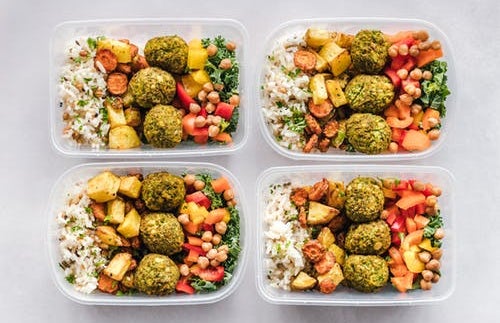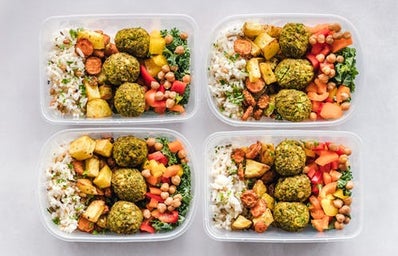Content Warning: This article discusses diet, weight and health. If you are being treated for an eating disorder, please consult your treatment team before taking a peer’s advice; likewise, if you’re sensitive to discussion of these topics, please proceed with caution.
It goes without saying that these are strange times. Like, really strange. Whatever your life looked like in February of 2020, I’m guessing it looks quite a bit different now. I’m also guessing it now involves a lot of oversleeping, procrastination and really unpredictable eating habits. I get it – I’m right there too.
I don’t mean to sound like anybody’s mom. But snacking all day (or not eating all day until 10 pm and then eating a bunch of food that’s neither nutritious nor enjoyable) is a really great way to throw off your body’s rhythm – which is a really great way to feel terrible all the time, both physically and mentally.
I’m not saying you have to get up at six in the morning to make a green smoothie and do an hour of yoga (although if that’s your thing, that’s amazing), but if you do one thing for your health I’d recommend taking charge of your meal plan.
1. Consider your goals. Let’s say our imaginary friend Jessica wants to maintain her current weight and eat fewer processed foods. Everyone’s goals are different – and as long as they come from a place of self-love and health, your goals are valid. The main goal here is to create a sense of rhythm and stability in the midst of a lot of overturned rhythms and instability.
2. Think of quantifiable ways to support your goals. Jessica might start by calculating her TDEE and setting a target range for her daily caloric intake; she could also decide to replace her usual processed snacks with fruits and vegetables. Regardless of your goals, I highly recommend doing this – letting yourself work up an appetite for protein and fats will help you eat more regular meals that support your goals. I also recommend creating set meal times, preferably 3 times a day. While there are people who swear by 8 tiny meals spread throughout the day – or, alternately, one massive meal per day – the point here is to create a healthy rhythm, and I just don’t think that grazing or fasting (except between dinner and breakfast) fit well into this rhythm.
3. Plan a rhythm of meals that supports your goals while suiting your preferences. Personally, I find it easiest to stick to a meal plan when I have relatively few decisions to make.
That means that I eat pretty much the same thing for breakfast and lunch every day, and I plan my dinners for each week the day before I go to the grocery store. This allows me to meet my calorie and macronutrient goals with very little day-to-day counting and logging. Some people might hate this, and for others it might not be healthy – but creating a rhythm is important, whatever that looks like for you. Create a “template” that supports your goals, and think of meals that fit into that template. Jessica’s template might be: “Oatmeal for breakfast with different toppings, a sandwich or leftovers for lunch, snack on fruit while I study, eat what Mom makes for dinner.” Other people’s templates might be more numbers-based, or center on weekly or twice-weekly meal prepping.
4. Make your plan happen. If you’re living away from home, this is as easy as going to the grocery store and cooking for yourself. If you’re living at home right now, talk to whoever does the grocery shopping and meal planning about this plan. Go shopping with them, or put the foods you’ll need on the grocery list. If this isn’t realistic, whether for financial reasons or because your parents are unsupportive, make do with what you can, and consider reaching out to local organizations for any support they may be able to give.
5. Give yourself the gift of grace. Dad comes home with a half gallon of ice cream? Your roommate decides to support local businesses by ordering $80 worth of takeout? You can have some. And you probably should – the point of this plan is to stabilize you, not imprison you. You are allowed to eat food that doesn’t support your goals – your “template” is NOT the law. Being kind to yourself means exercising both restraint and indulgence, at the right times.
If you can come out on the other side of this mess with some semblance of routine and stability, you won’t regret it. Whatever your goals, you CAN make progress toward them – and you can strengthen yourself through this progress.
Happy eating!


